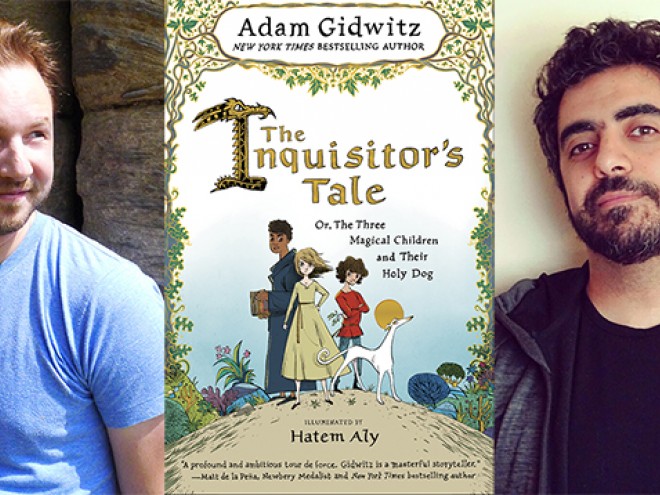To describe Adam Gidwitz’s middle-grade novel, Max in the Land of Lies, as ambitious would be an understatement. A sequel to Max in the House of Spies (2024), about a Jewish child enlisted by British intelligence to infiltrate Nazi Germany, it follows Max on his dual mission. Officially charged with using his skills with radio technology to uncover the secrets of Nazi propaganda, Max’s personal mission is to locate his parents, who sent him to England to ensure his safety. Gidwitz builds the narrative with unpredictable plot twists, ambiguous characters, and speculation about the psychology of fascism, creating a complex work with a vulnerable but determined thirteen-year-old boy at its center. Max’s legendary helpers, Stein the dybbuk and Berg the kobold, are also back, strategically delivering doses of Jewish humor and engaging in ongoing dialogue about Max’s fate.
Carrying with him his watchmaker father’s lessons about taking apart and reassembling timepieces, Max tries to approach his terrifying situation with calm calculation. Yet learning about the disappearance of his parents when he arrives at his former Berlin home is a wrenching experience. He is also immersed in the constant state of suspicion that characterizes Germany under Nazi rule. Like Max, the reader is never sure about the loyalties or motives of those who Max encounters. Mr. Pfeiffer, the radio shop owner with secrets of his own, seems improbably kind. Pastor Andreas is sympathetic but weak, rationalizing his compliance with the state while serving as a Christian clergyman. Even Hans Fritzsche, the radio personality whose voice delivers lies on his popular program, is difficult to decipher.
Radio, both its technological aspect and its cultural meanings, plays a key part in Max’s story; throughout the book, there are details about actual models as well as metaphors about radio’s endless potential. Given the opportunity to work on an important set, Max declares that “This isn’t a box of bolts and wires! … This is where lead gets turned into gold!” Dictators have destroyed the utopian vision of radio as a means of broadening access to culture, instead converting it into an invaluable means for disseminating lies.
Gidwitz’s exploration of moral responsibility in the shadow of terror raises many questions. In a detailed afterword, the author acknowledges that some readers may be troubled by his attempt to “humanize Nazis.” He explains that portraying the perpetrators and their supporters as totally aberrant would actually leave us unprepared to confront all the human adaptations to evil. Yet at times, the focus on abuses committed by the Allies tends to neutralize the atrocities intrinsic to the Nazi regime. There are many discussions about the evils of British imperialism and American racism, with even Max questioning “if he was on the right side of this war.” Berg, with his signature sarcasm, looks forward to their return to England: “Then maybe we could get out of the land of Nazis and back to the land of very well-behaved imperialists.” At several points in the story, and in his afterword, Gidwitz is careful to negate the idea of moral equivalency, and does draw a clear distinction between the two sides. Similarly, the author’s references to other groups subject to persecution is both realistic and relevant, yet the Nazi’s unique obsession with eliminationist antisemitism, leading to the near-total annihilation of Europe’s Jews, should still be clear in this powerful story of hatred and resistance.
Emily Schneider writes about literature, feminism, and culture for Tablet, The Forward, The Horn Book, and other publications, and writes about children’s books on her blog. She has a Ph.D. in Romance Languages and Literatures.





